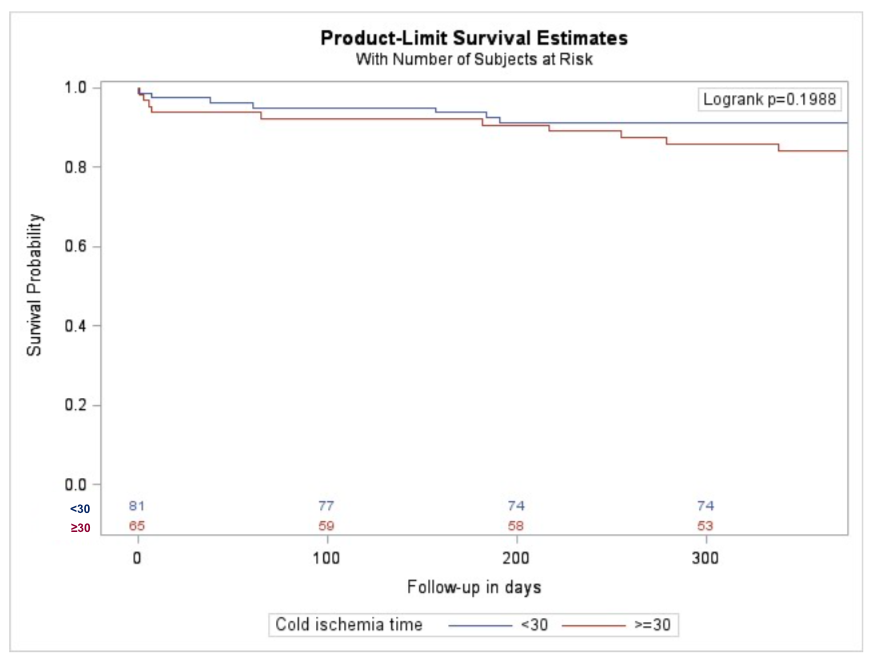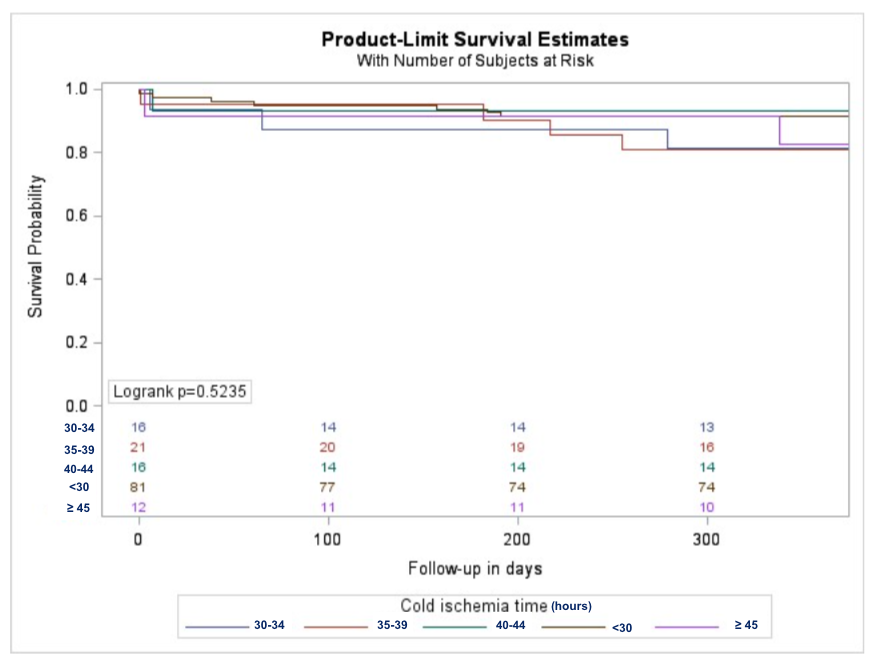Impact of Cold Ischemia Time on DCD Kidney Transplant Outcomes
Transplant Surgery Division, Dept of Surgery, University at Buffalo, Buffalo, NY
Meeting: 2019 American Transplant Congress
Abstract number: B158
Keywords: Allocation, Donation, Donors, marginal, Graft function
Session Information
Session Name: Poster Session B: Kidney Donor Selection / Management Issues
Session Type: Poster Session
Date: Sunday, June 2, 2019
Session Time: 6:00pm-7:00pm
 Presentation Time: 6:00pm-7:00pm
Presentation Time: 6:00pm-7:00pm
Location: Hall C & D
*Purpose: Kidney transplantation (KTX) from Donation after Circulatory Death (DCD) donors is associated with high rates of delayed graft function (DGF) and potential worse graft survival when combined with prolonged cold time. However, additive effects of CIT and DCD on burden of care have rarely been studied.
*Methods: Consecutive DCD kidney-only adult transplants performed by a single surgeon at three different hospitals between April 21, 2008 to January 13, 2017 were stratified by CIT ≥ 30 hours (n=65) and <30 hours (n= 81).
*Results: Compared to short CIT, the long CIT donors were significantly more likely to be over 40 years old (49.4% vs 70.3%), non-white (7% vs 26%) and non-mandatory share (54% vs 97%). There were no between-group differences in terms of DGF (53.1% vs 56.9% p= 0.643), hospital length of stay (8.4 22.3 vs 10.7 25.4 days, p= 0.571), 30-day readmission (26.3% vs 23.6% p=0.743), urinary complications (5% vs 1.5% p=0.262), and 6-month reoperation rate (14.8% vs 23.1%, p= 0.201); however, there was a trend towards higher 1-year graft failure amongst long CIT (15.4%) compared to short CIT (8.6%, p=0.07) recipients. The cumulative probability of graft failure was similar in both groups and when further stratified into CITs: <30, 30-34, 35-39, 40-44, and ≥45 hours (figures 1 & 2).
Figure 1.
Figure 2.
*Conclusions: Exposure of DCD kidneys to prolonged CIT is not associated with increased burden of care, however, a potential impact on graft survival warrants adjusted analysis.
To cite this abstract in AMA style:
Narvaez J, Kayler L. Impact of Cold Ischemia Time on DCD Kidney Transplant Outcomes [abstract]. Am J Transplant. 2019; 19 (suppl 3). https://atcmeetingabstracts.com/abstract/impact-of-cold-ischemia-time-on-dcd-kidney-transplant-outcomes/. Accessed February 28, 2026.« Back to 2019 American Transplant Congress


